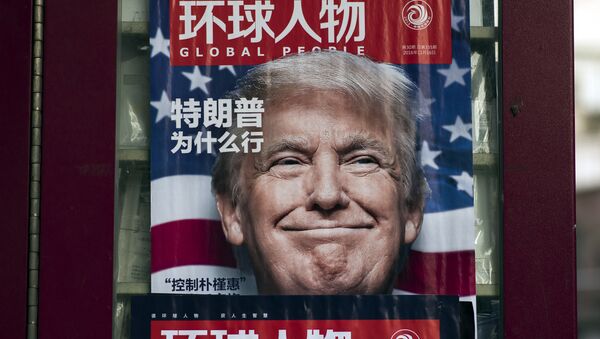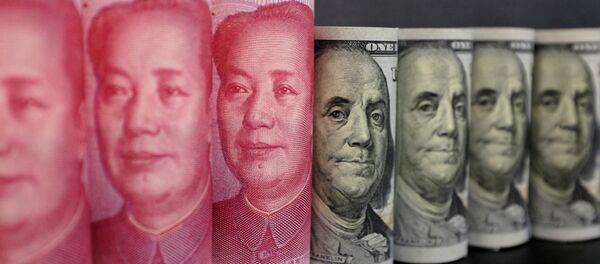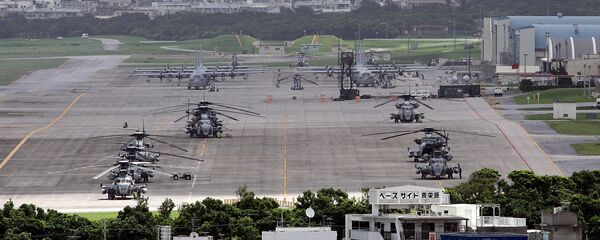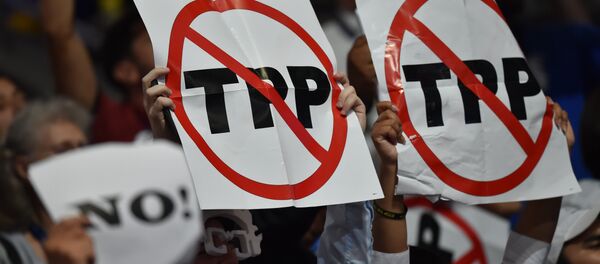With Trump's executive order on counter-terrorism measures in the focus of worldwide attention, the President's political maneuvers toward Asia remained largely unnoticed.
Indeed, US Defense Secretary James 'Mad Dog' Mattis' trip to Asia failed to catch headlines. However, according to Kosyrev, this routine journey has marked the beginning of Trump's Realpolitik.
"Mattis' trip is the beginning of a complex and, perhaps, winning diplomatic combination of Trump and, in fact, the starting point in his foreign policy," Kosyrev writes in his op-ed for RIA Novosti.
According to the political commentator, America's major allies in Asia Pacific — South Korea and Japan — may now sleep easy: Mattis signaled that Washington won't force them to shoulder America's financial burden on security in the region.
"New US Defense Secretary James Mattis will not ask Japan and South Korea to pay a bigger share of the expenses associated with hosting US forces when he visits the two key Asian allies this week," The Japan Times reported last week, citing American and Japanese government sources.
The White House's rhetoric has caught many by surprise: during his election campaign Trump had repeatedly stressed that he would obligate America's allies to pay more for their security.
"This shift could be explained simply," Kosyrev wrote, "Mattis' trip [to Asia] is a prelude. On February 10 Japanese Prime Minister Shinzo Abe is due to visit the United States to discuss actually a 'big deal' or a new system of relations between the two allies. Japan will invest in creating new jobs and industries in the US; for this [Tokyo] will use financing from the Japanese pension fund, the largest in the world."
Kosyrev pointed out that at the same time, Trump is not rushing to establish closer relations with the EU and Australia: Washington has shifted its focus to the East.
There are many reasons for this rebalance; however, US-Chinese relations lie at the root of Trump's present strategy, according to the political commentator.
"In fact, we can say that Trump has begun his real foreign policy by establishing the system of relations around China, the main geopolitical rival [of the US]. Europeans and their ideological allies can wait," Kosyrev remarked, referring to the fact that the EU's political landscape may undergo serious changes after upcoming elections in France and Germany.
However, the political commentator assumed that, in contrast to gloomy prognoses, Trump's Asian policy will be rational and predictable.
In this respect, Nikita Maslennikov, an expert at the Institute of Modern Development echoes Kosyrev. In an interview with Sputnik Chinese, Maslennikov pointed out that Trump is a pragmatist and that it is highly unlikely that Washington and Beijing will start a trade war.
"They are exchanging views and signals before beginning a serious discussion about the future [relationship] which [would be built] in accordance with both Trump's pre-election promises and China's opportunities," Maslennikov said.
Retired Maj. Gen. Pavel Zolotarev, the deputy director of the Institute for US and Canada Studies at the Russian Academy of Sciences (RAS), shared a similar stance.
"The relationship between China and the US is founded on a solid economic basis," he said, adding that are highly unlikely to cross the red line.
Interestingly enough, speaking to journalists in Tokyo Mattis stressed that the US does not see "any need for dramatic military moves" toward Beijing in the South China Sea.
"What we have to do is exhaust all efforts, diplomatic efforts, to try and resolve this properly. Our military stance should be one that reinforces our diplomats," Mattis said.







